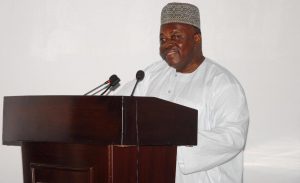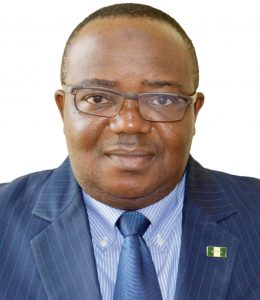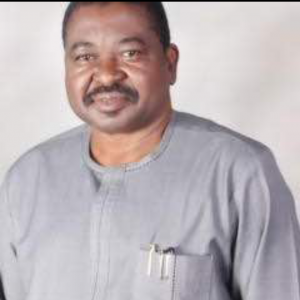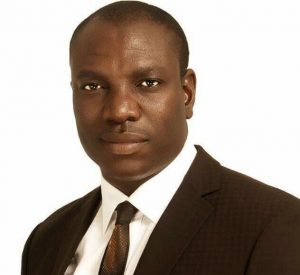It is still not too late welcoming known survivors of Covid-19 in 2021 to 2022. Doing so is considered important partly because Covid-19 established itself in Nigeria as the most no-nonsense virus to come.

A unique experience of Covid-19 or what do we call Prof Jibrin Ibrahim’s?
If the virus could kill Abba Kyari, the late Chief of Staff to President Buhari, then who could it not kill? As the COS, he could assemble the best that Nigeria has to offer. His death thus sent a message that there was trouble at last and Nigerians would die in large numbers the way it had been speculated by players in international development such as the UN Secretary-General, Bill Gates and the WHO, amongst others.
This was before the virus submitted to the force of Africa’s hot, humid and sunny environment as to be unable to kill Africans in their thousands. But just as everyone was wondering if this virus was in the mood to make a concession to the long suffering Africans, the second wave came about in a no-nonsense poise. It took on professors in particular in Nigeria – Prof Chukwuma Osakwe of the Nigerian Defence Academy in Kaduna; Prof Moses Tedheke also of the Nigerian Defence Academy, Kaduna; Prof Habu Galadima, political scientist and Director-General of the elite training ground in Nigeria – the Nigeria Institute for Policy and Strategic Studies, (NIPSS); ABU, Zaria Criminologist, Prof Femi Odekunle; Prof Ibidapo Obe, two-time Vice-Chancellor and Prof Ebere Onwudiwe who would be a year on January 8th, 2022.

The late Prof Habu Galadima, DG of NIPSS at the time Covid-19 claimed him in 2020
Of course, many prominent Nigerians who were not professor perished too. Most notable would be General Olubunmi Irefin of the Nigerian Army and Mr. Sam Nda-Isaiah, publisher of Leadership newspapers, Abuja.
It is against this background that exemplifying survivability of Covid-19 is warranted. Of course, the selection here is nothing systematic.
The first person on our list is Professor Zachary Gundu. His dates back to middle of 2020. In an interview with Intervention then, the Professor of Archeology said the loneliness of being in the isolation center could kill. Because he was in his home state of Benue in central Nigeria, he was well served as far as food was concerned. But bringing the food with a ten-pole delivery system by the fear-filled hospital attendants was a different experiencee for him.
The long and short of it is that he survived. Not only did he survive, he has moved on to being made the Vice-Chancellor of the University of Mkar, near Gboko. If there is any job that can be called sensitive, it must be that of being the VC. It is so because it is about incubating future leaders. A Vice-Chancellor who can unleash on the world even ten properly grounded students every year (Masters, PhD) can say he has settled account with God because such students groomed on purpose would be the defenders of elevated standards in society.

Prof Zachary Gundu for whom the loneliness was an ordeal
After Gundu comes Barbra Ekporikpo, a living member of the defunct Women in Nigeria, (WIN). (Those who are surer of the spelling of the surname can come to Intervention’s rescue). She is one of the earliest to survive it, becoming the informal advisor of sort to those still lost in fear or in search of what first things to do in the event of infection.
Another WINner, this time a male member is our next survivor. He is Prof Jibrin Ibrahim, the uniqueness of his own experience, going by his story of his experience in a recent piece, is that all members of his family were all down simultaneously. To that extent, he must be the richest source of conclusions for those out seeking strategies for coping with the eventuality.
The last but not the least is Dr. Chris Kwaja of the Modibbo Adama University in Yola. He simply disappeared from the radar everywhere which is unusual for the here and there peace scholar. So, a call to him became necessary but to which there was no response immediately. When the response did come, it was so thin and dry. It was much, much later that it became clear that something serious had caged “the younger element” himself. Then he owned up – Covid-19 found him. Well, by this time, he had survived it and a joke was possible: ah, good for you, you don’t stay in one place at all. And then the shrill protest.

Dr. Kwaja, the survival of a ‘Young Turk’
What was the biggest lesson for him from the experience? The loneliness in the isolation centre is an ordeal he would not wish for his enemies, if he has any at all. In other words, he is one with Prof Gundu. The medical and para-medical staff have to protect themselves from those they are treating. So, as much as the infected person gets what is prescribed for him or her, it is delivered in a way that does not make the operative a fall guy. It is probably the only situation where nobody can be called to stay with this patient – neither wife nor husband and certainly not junior or first daughter or Last born’. That leaves the patient in the real middle of nowhere.
But Dr. Kwaja has survived it and is back to trouble-shooting scholarship. What is not clear yet is whether his Covid-19 experience helped him overcome his reported fear of politics, or of Nigerian politics.
There are many more survivors with great lessons for those anticipating their own turn. It is great we can easily recall some survivors. It could have been otherwise for them as it has been for many more that no one heard about beyond government statistics of deaths from Covid. In all these, the question should be: when might Nigeria have developed minimum capacity to respond to some of these new security challenges better and reduce fatalities?




























